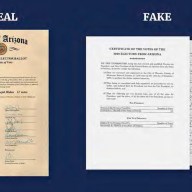By Marton Dunai
BUDAPEST (Reuters) – Hungary’s main opposition Jobbik party is moving from its roots as a far-right, anti-Semitic radical group to target the mainstream, and plans to challenge ruling Fidesz for power in 2018 elections, its leader Gabor Vona told Reuters. Jobbik has openly vilified Jews, gays and foreigners, and its paramilitaries used to march through areas where Roma people live. It also favored forging ties with Russia, Iran and Turkey rather than the European Union, of which Hungary is a member. But last month Vona sent Hannukah greetings to local Jews.
His party had a lot to atone for, he said in an interview this week, insisting the shift would yield substantial political results, elevating the party to government sooner or later.
Mimicking a move by Prime Minister Viktor Orban’s Fidesz – which ditched its liberal roots and rose to power as conservatives in 1998 – Vona plans to take voters from the left, where parties are in disarray, and right. “We will need several bridges … to voters on the left, not to parties on the left,” he said. “Jobbik offers a message, a program both to former leftist and former rightist voters.” He said the party’s new “modern conservatism” borrowed both from progressive and right-wing agendas, such as environmental protection and wage equality across the EU, and countries growing their economies without relying on immigrant workers. Vona also drew a stark contrast between his own party and Fidesz, which has put pressure on independent media and plans to “sweep out” civil society groups.
“Independent institutions, checks and balances … it may have been hard to imagine but a Jobbik government would create a far more democratic political system in Hungary than Fidesz has built in the last seven years.” In the latest opinion polls Jobbik scored about 10-13 percent, while Fidesz’ support was about 31-36 percent. A large chunk, about 40 percent of the population, is undecided.
Jobbik claims its core voter base is about 20 percent of eligible voters, and Vona said the party’s own surveys show it as the least unpopular of all major groupings, and voters’ most popular second choice. “We have very serious reserves,” he said. “I am certain Jobbik will govern Hungary at some point – it is only a matter of time. Obviously we are working to make it happen in 2018.” He said the double credibility gap Jobbik had – its hardline supporters felt cheated and its potential new voters need to be convinced – was temporary and natural in a transition phase. “We are growing out of our teenage years,” he said. “So many times teenagers realize, wow, I was so wrong… (Jobbik) may be a teenager who collided with brick walls a few times before realizing life is not black and white.” He cited the row over his Hanukkah greetings.
“We were right to do what we did during the holidays,” he said. “If you want to govern you need to partner with all religious and other groups. I will do the same thing (send greetings) in the next holiday season, too.” In future, Jobbik would treat Israel like any other nation, he said.
“If we disagree, we want to be able to criticize Israel like we criticize Sweden or Germany, but naturally we respect its right to exist, form its own identity, opinions and articulate its interests,” he said. (Editing by Louise Ireland)


















